ERP
ERP software for the automotive industry
The automotive industry is a constantly evolving sector, facing numerous challenges such as increasing pressure to cut costs, improve product quality, and the need to remain competitive in a global market. To meet these challenges, companies in the automotive industry need high-performance, flexible management tools. This is where ERP (Enterprise Resource Planning) software comes in. ERPs are integrated management systems that enable companies to efficiently plan, organize, and control their business processes. In this article, we’ll explore how these tools can help companies achieve their business objectives and stay competitive in an ever-changing global marketplace.
Contents

What is ERP for the automotive industry?
An ERP (Enterprise Resource Planning) is an integrated management system designed specifically to meet the needs of companies in the automotive sector. It is designed to help companies effectively manage all their business processes, including manufacturing, inventory management, production planning, supply chain management, financial management, and human resources management.
Automotive ERP systems are designed to be highly customizable and adaptable to the specific needs of each company. They can also include industry-specific applications, such as development project management, sales contract management, and equipment integration.
In short, this type of software is an integrated management system designed to help organizations effectively manage all their business processes, from production and supply chain management to financial management.
What are the functionalities of an automotive ERP?
In the automotive sector, an industrial ERP can offer the following functionalities:
Supply chain management: an ERP for inventory management can track the delivery of parts, manage stock levels, and optimize production flows to minimize waiting times.
Production planning: help to plan manufacturing according to customer requirements and parts available from manufacturers, optimizing lead times.
Cost control: provide information on production costs for each vehicle, and track expenses incurred.
Quality management: monitor product competence, identifying problems and enabling corrective action to be taken.
Maintenance: help plan and monitor preventive machine maintenance, which can reduce downtime and maintenance costs.
Human resources: track employee schedules, absences and vacations, as well as employee skills and training.
Sales and purchasing management: track sales orders, invoices and payments, as well as purchases of raw materials.
Analysis and reporting: provide data for analysis and reporting, enabling decision-makers to monitor performance and identify areas for innovation.
These features can help auto groups to improve operational efficiency, cut costs and enhance their products.
What are the benefits of using an automotive ERP?
Using full-web software can offer a number of advantages, including:
Improved supply chain and supply chain management:
Companies often produce complex products that require detailed bills of materials and manufacturing routines. An ERP system must be able to manage this information efficiently to optimize production.
Improved production planning:
Help plan operations according to customer needs and available products, which can reduce downtime and increase productivity.
Quality development:
Make it possible to monitor manufacturing capacity, detect problems and apply corrective measures to improve end products.
Cost reduction:
Help reduce costs by optimizing processes and identifying areas for improvement to maximize efficiency.
Better decision-making:
With greater visibility into operations, the solution can provide real-time information to help decision-makers make more informed decisions.
Improved internal collaboration:
Improve communication and collaboration between different company departments, which can help solve problems more quickly and improve overall efficiency.
Improved customer satisfaction:
By improving delivery, the installation of an ERP can contribute to customer satisfaction and loyalty.
In short, an ERP solution designed for automotive service can offer better operations management, cost reduction, and product enhancement, all of which can help improve the company's profitability and competitiveness.
What criteria should you take into account when choosing your automotive ERP?
When choosing an ERP system, there are a number of important criteria to take into account:
- Applications: offer key functionalities that meet the requirements of the automotive department, such as supply chain management, production organization, cost management, quality, maintenance, human resources, and sales and purchasing control.
- Integration: ERP software must be integrated with other company systems, such as machinery, design tools, and financial systems.
- User-friendliness: the tool must be easy for employees to use, with an intuitive user interface and automated actions.
- Flexibility: it must be flexible and adaptable to business needs, offering customization options for specific business processes.
- Security: it must offer robust security measures to protect business data, ensuring appropriate data security.
- Scalability: it must be scalable to adapt to future business needs.
By taking these criteria into account, the company can select the vendor solution that best meets its specific needs.
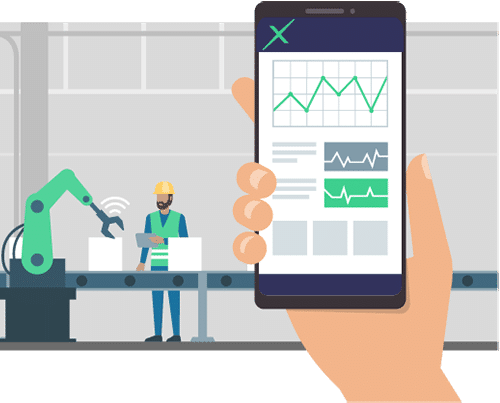
What are the key sectors in the automotive industry?
The automotive industry is very broad, encompassing many sub-sectors and activities. Key automotive sectors include:
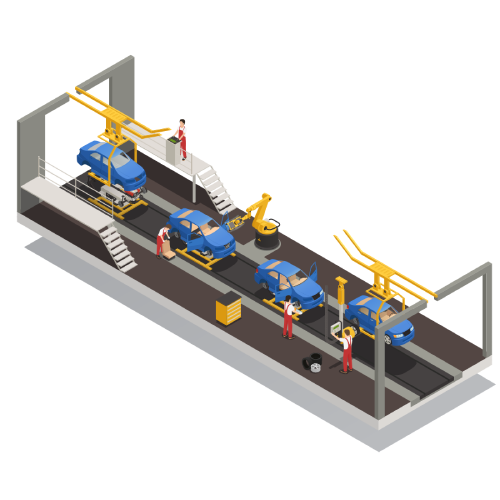
Car production:
Manufacturers produce cars, trucks, vans, and buses, which are sold to consumers.
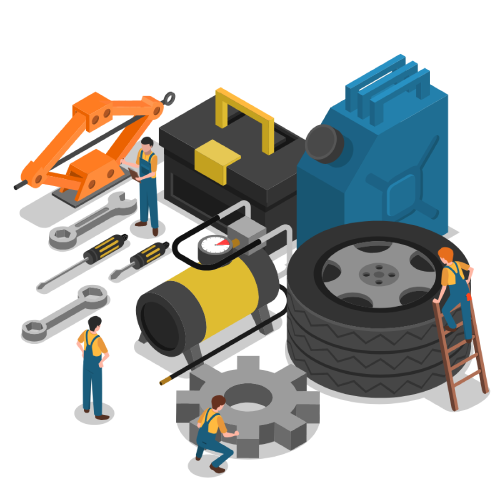
Auto parts manufacturing:
Suppliers produce a wide variety of parts, from engines to bodies, which are sold to automakers.

Distribution:
Dealers sell cars and offer maintenance and repair services to consumers.
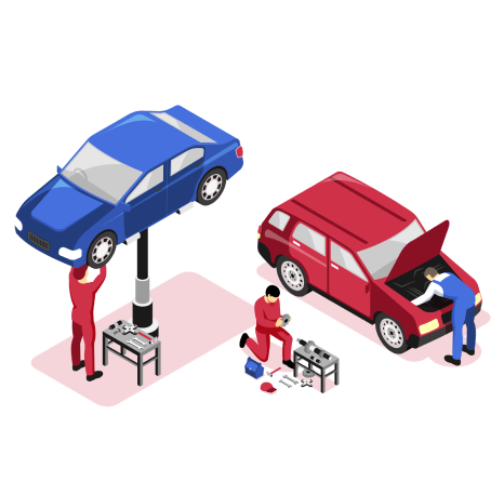
Maintenance and repair services:
Garages and repair shops carry out repair and maintenance work on cars.
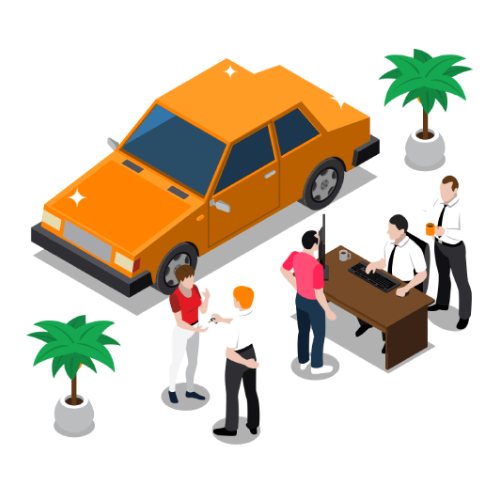
Financial services:
Banks and financial institutions offer financing services for car purchases.

Car rental companies:
Car rental companies offer car rental services for individuals who need a car for a set period of time.
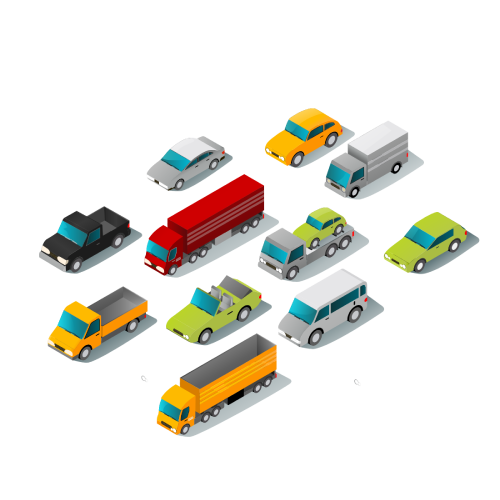
Transport services:
Transportation companies use vehicles to transport people and goods.
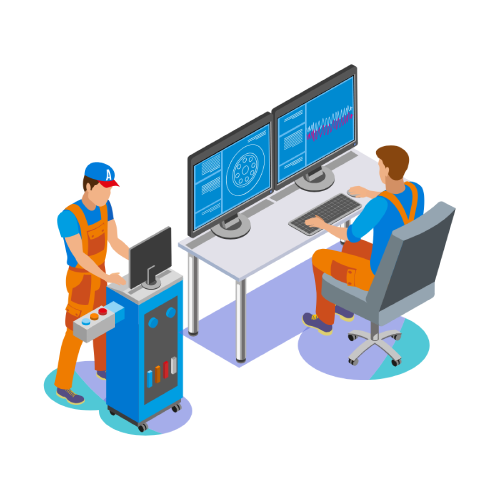
Research and development:
Automotive organizations invest in the research and development of new technologies, materials, and vehicle concepts.
In short, the automotive world is highly diversified, with numerous activities and sub-sectors contributing to the manufacturing, distribution, and use of cars and other vehicles.
Why choose Axelor’s automotive ERP software?
Axelor, a French software publisher, offers Open Source ERP software. As such, it is perfectly adapted to the challenges of the automotive sector. This tool enables you to accelerate and optimize your business, thanks to tools integrated into the platform. You can choose to host the Cloud ERP on our dedicated servers. This integrated management software package is highly comprehensive, enabling you to manage job-based production, inventory optimization, requirements calculation, customer relations, merchandise planning, quality control, and online product sales. Axelor can also help you meet your ERP specifications.
Thanks to its modular system, you have direct visibility of current stock levels, orders, and estimates. Our CAPE software also makes proposals accordingly.
Find out how our ERP can help you improve your business performance
An expert will contact you shortly to discuss your project.